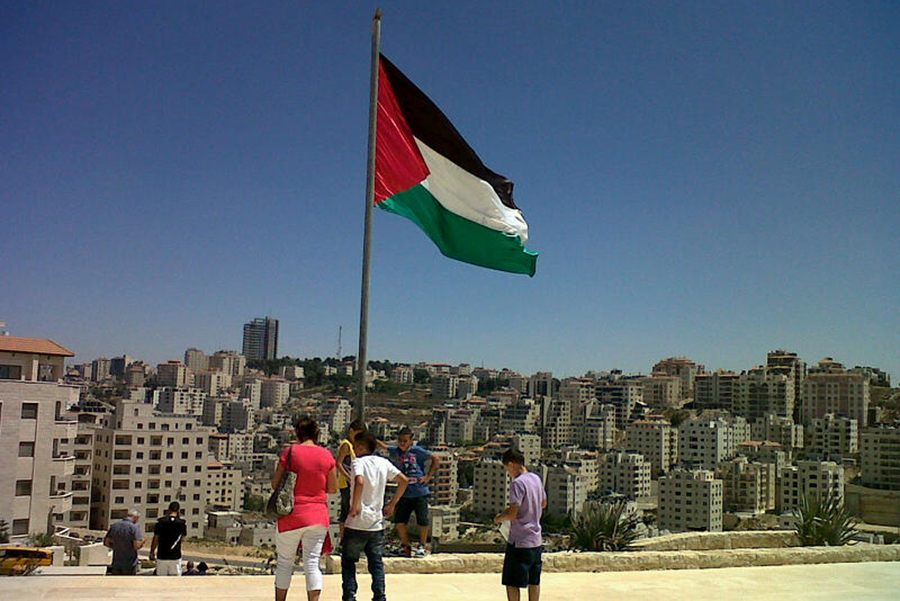
 If you think Israel is the only nation guilty of violating the human rights of Palestinians, then you are sorely mistaken. For all the condemning of the Israeli-Palestinian conflict by Arab states, these countries are far from blameless when it comes to the mistreatment of the “world’s oldest unsettled refugee population.”
If you think Israel is the only nation guilty of violating the human rights of Palestinians, then you are sorely mistaken. For all the condemning of the Israeli-Palestinian conflict by Arab states, these countries are far from blameless when it comes to the mistreatment of the “world’s oldest unsettled refugee population.”
Even Jordan, a country recognized for its integration of Palestinians within their society by affording them citizenship, is guilty of discrimination. Jordanians of Palestinian origin are denied equal rights in the military and in obtaining college scholarships and admittance to some public universities. There are also limits to the number of Palestinians allowed in parliament (less than 10 percent). Despite the fact that they can call themselves Jordanians, they are still subjected to laws intended to marginalize them. And yet, for a Palestinian refugee, Jordan is comparably favorable to the treatment they would face at the hands of their Arab neighbors.
In Syria, Palestinians are not allowed to attain citizenship but can be employed. Even Palestinians who have called Syria home for years still suffer from statelessness; they cannot, for example, vote or run for office. Similarly to Jordan, upwards of 200,000 Palestinian refugees are placed in camps. And the situation has only worsened in recent years with the Syrian Civil War.
In Lebanon, Palestinians are the victims of state-sponsored apartheid laws. The hundreds of thousands of Palestinians in Lebanon have been denied citizenship and over half reside in camps in which the population is at triple capacity. 50 job categories are banned for Palestinians — a favorable situation to the previous 73 bans prior to 2010 — including employment as a physician, journalist, pharmacist or lawyer. They cannot build or own property nor reside beyond their military-guarded camps, which are not allowed to expand. These camps also lack sufficient basic services like electricity, sewage and waste disposal.
Aside from legal discrimination, Palestinians are also the victims of brutal mass violence.
After the Gulf War, Kuwait experienced the exodus of approximately 400,000 Palestinians. In Iraq, after the fall of Saddam Hussein’s regime, Palestinians in Iraq were subjected to ruthless violence by both the Iraqi government and militia groups, and in 2010, 10,000 Palestinians remained of the 25,000 who were there in 2003. The Sabra and Shatila Massacre in Lebanon was an unjustified mass murder of mostly Palestinians and Lebanese Shiites in the Sabra neighborhood and Shatila refugee camp. Descriptions of the horrific treatment of the Palestinians in an array of countries throughout the years could fill pages upon pages, but a simple question remains: Will it be recognized and, therefore, atoned for?
The Palestinian diaspora has been internationally ignored for years, being reduced to simply “Israel or Palestine: Whose side are you on?” But the situation is far from this simple. Generations of Palestinians have had to raise children in countries and camps with no hope of bettering their situations and fear for their survival. All the while, their hardships are being reduced by the media, to the extent to which we’ve arrived at a world that no longer cares. The Arab League has stated that the decision not to grant citizenship to thousands of displaced refugees is an attempt to preserve the Palestinian identity — which is a ridiculous notion. The fact of the matter is that most Arab countries don’t want to afford refugees the same rights as their own citizens. Issuing countless statements reprimanding Israel is intended to make Arabs feel good while simultaneously failing to take action, ultimately creating complacency.
By denying citizenship or placing limitations on employment, these countries have effectively imposed a cap on social mobility for Palestinians. Beyond Jordan, they hold no representation in government — they can only hope that those in power will choose to represent their issues, which, thus far, has been a catastrophic failure for countries like Lebanon.
Of the total Palestinian population, which encompasses 9 million people, 74 percent are displaced. Around 6 million individuals of Palestinian origin are stateless — and this means something. Statelessness indicates that all of those 6 million people are essentially left vulnerable to the discrimination and violence of both Israel and their Arab neighbors. Arab states can condemn Israel as much as they please, but to suggest that they are not perpetrators of incredible human rights violations would be a gross injustice to the Palestinian people.
Despite years of oppression, Palestinians across the region continue to protest and fight for their right to be recognized as human beings. But if the world is against them, then what they’re fighting for will be forever out of reach.
Written by: Hanadi Jordan — hajordan@ucdavis.edu
Disclaimer: The views and opinions expressed by individual columnists belong to the columnists alone and do not necessarily indicate the views and opinions held by The California Aggie.




Such an informative article – I really loved it! I thought I knew a lot about this situation, but you showed me I only know the most basic parts of the problem. Thanks Hanadi!